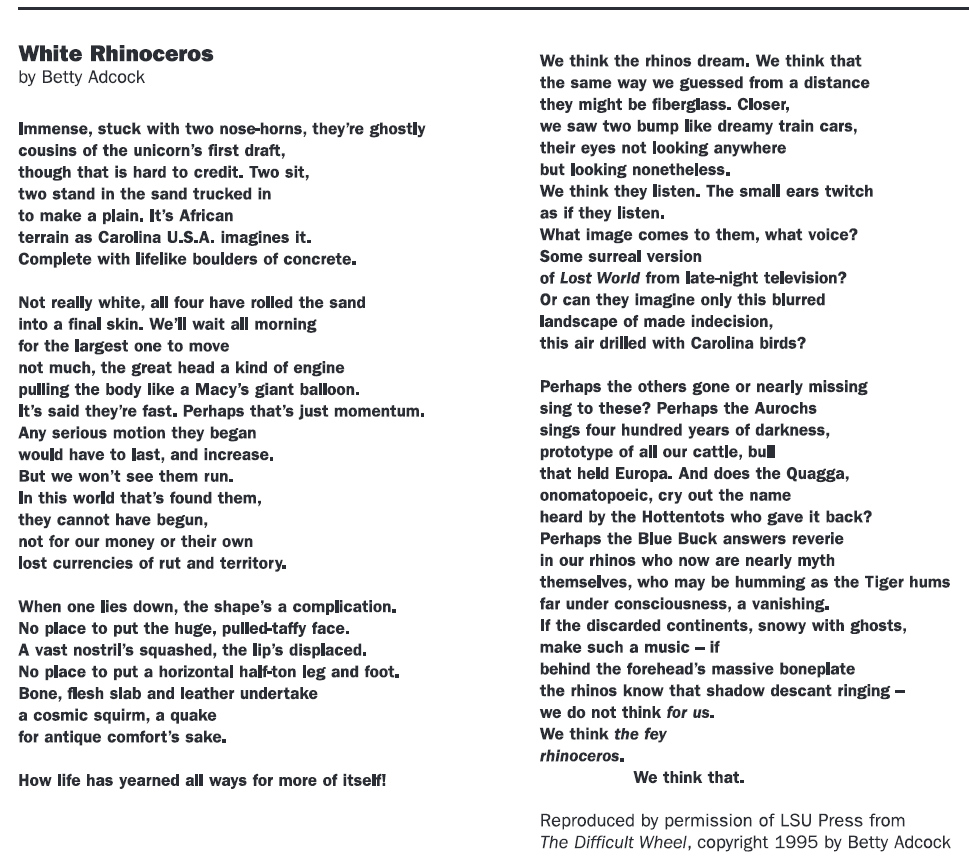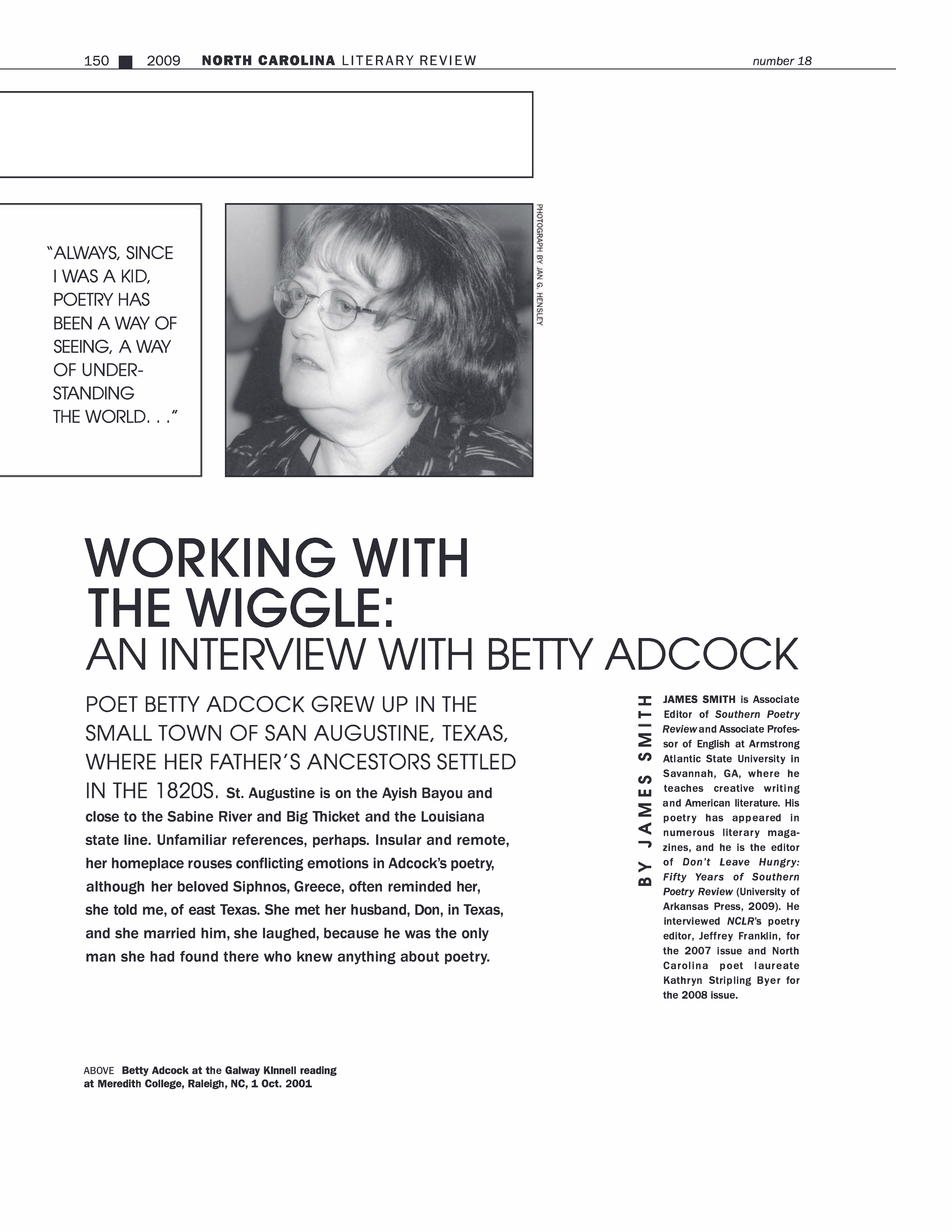Friday from the Archives: “Working With The Wiggle: An Interview With Betty Adcock” by James Smith from NCLR 18 (2009)
“Betty Adcock’s work often suggests a struggle with words, an attempt to make them do something, go someplace, for the first time. To read her is to be reminded that language is a complex instrument for exploring and describing a complex world.” wrote reviewer Robert West. High praise for any poet and Adcock, the self-taught Texas transplant, would probably agree.
She said, “But as a poet, I have to mean more than my personal history. It has to be a lens. Always, since I was a kid, poetry has been a way of seeing, a way of understanding the world – or, correction – if not understanding, at least a way of framing the questions, possibilities, speculations…. …poets have a calling, I think, to see as clearly as possible, to write about more than their belly buttons or their quarrels with language. As a friend of mine said recently, “In this terrifying time, poets cannot afford not to make sense.””
Adcock, long time Meredith College artist-in-residence, graced NCLR with eight poems, as well as the interview in 2009, another interview-type essay in 2017, and the remarks from the 2014 Literary Hall of Fame Induction Ceremony, when she joined fellow poets Ron Bayes, Jaki Shelton Green, and Shelby Stephenson for inclusion into our literary luminaries.
Smith asks about the meaning and language behind one of her poems, “White Rhinoceros” (picture below). After she shares the story of the inspiration of the poem from a book and a visit to the NC Zoo, Smith says, “”Fey,” then, is the perfect word here because it’s another one whose primary meaning has almost vanished over time.” to which Adcock replies, “Exactly. I love playing with language like that. I just don’t see how people can decide that language doesn’t do what it does – because it does. A woman I went to school with, a scholar now at UCLA, came up to me after a reading and said that she never reads poetry. “Language is so slippery,” she said. “It teases and lies and confuses. There’s so much wiggle in it.” And I said, “Well, that’s what we do. Poets work with the wiggle.” That wiggle is always present in language, but as poets, we use it to find a different kind of accuracy.”

Read the entire article in ProQuest now or by purchasing a copy of the 2009 issue.
